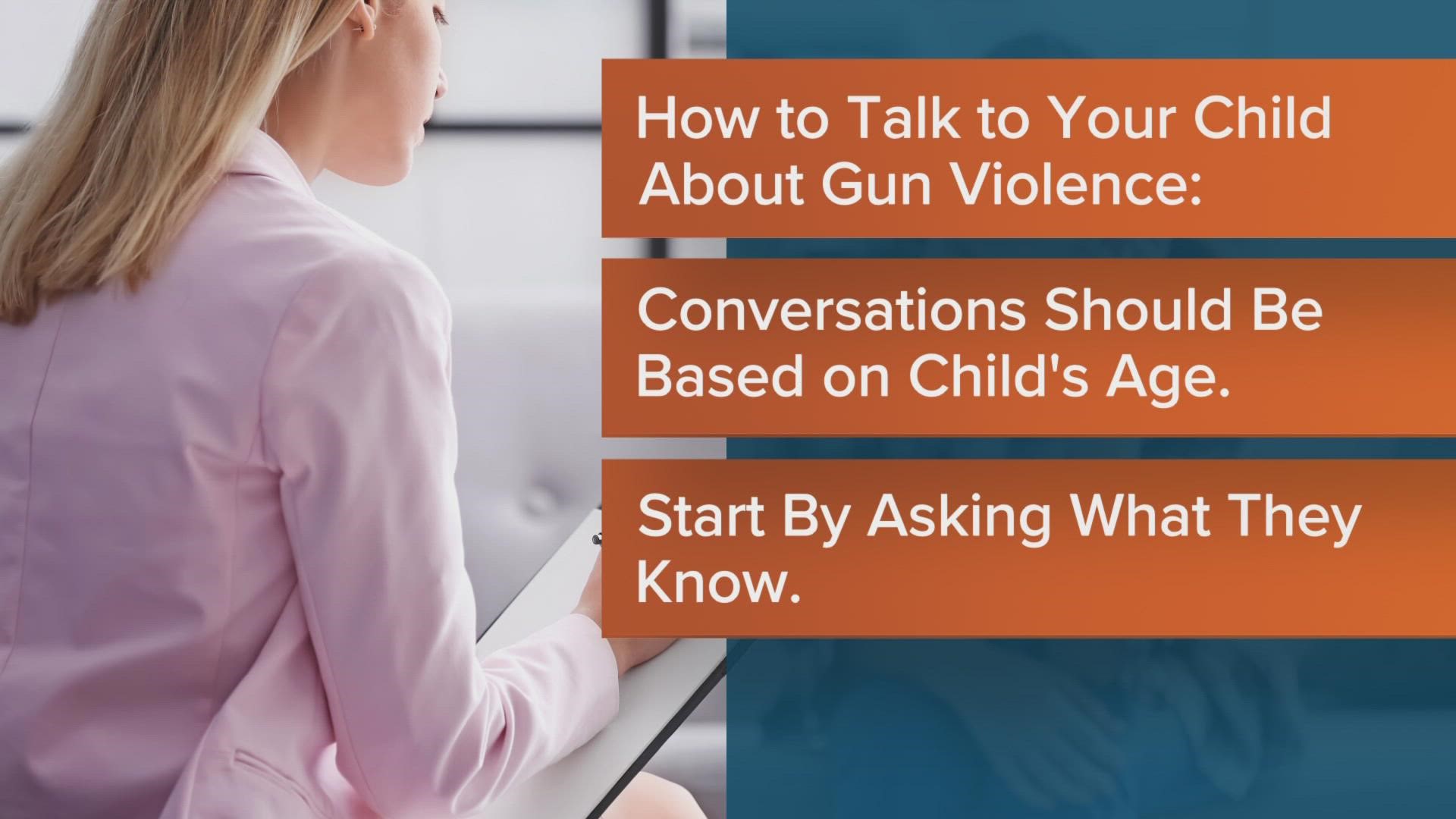BLOOMINGTON, Ind. — As students head back to school, communities are still talking about the mass shooting at Greenwood Park Mall.
While the news can be difficult to comprehend, Nicole Martins, associate professor of communication science at Indiana University, said it can be even more difficult for children.
"It is harder for parents to now say, 'Oh, you don't have anything to worry about because that didn't happen here. That happened someplace else,"' Martins said. "It is happening here, right?"
According to Martins, even young school children are aware of gun violence in their community. She said most of their exposure happens through practice drills at school or hearing about it through adult conversations.
When it comes to talking to children about the ongoing issue, it is not a one-size-fits-all approach, according to Martins.
"What you say to your child should be based on how old they are," Martins said, who published an article in July, walking parents through how to have those tough conversations.
When it comes to young children, Martins recommends asking them what they know and what questions they have about what they've heard.
"As they get older, children are watching the news. Most of that news exposure is coming because they are intentionally seeking that out, particularly with teens," Martins said. "It might be a good idea to watch the news with your kids. Pause the newscast. Ask what questions they may have."
Teens and older children may not be open to talking about the issues, but Martins said not to assume that means they haven't seen information about it.
"I wouldn't wait until your teen has questions," Martins said. "I would go and ask them about what they know, what questions that they have, and with teenagers, you want to be really careful not to dismiss their concerns. Let them talk to you and have these frank conversations."
For teens, Martins also suggests letting your child know you are available to talk when the child is ready.
"Let them talk," Martins said. "Honest, transparent conversation, messages of reassurance. 'You are safe, you are loved, we have a plan in place' often go a long way in managing most children's fears."
While Martins said fear can be contagious in situations like this, she said it's OK to show your own vulnerability.
"I think it is OK to admit when you don't know," Martins said. "It's OK to admit when you feel frustrated and angry when this is happening. Again, to share that kind of common emotion is important. Honesty and transparency is the key to talking to children of all ages, but the kind of information you share might just change a little bit, depending on the age of the child and what's most appropriate for them at their developmental stage."
Martins also suggests using external tools to help your child cope. Some of those tasks could include finding ways to support the victims' families or contacting local leaders to encourage change.
When violence hits close to home, Martins said coping can be even more difficult.
Children may experience symptoms like sleep loss or emotional distress. If the issues persist, Martins suggests reaching out to your child's pediatrician.
What other people are reading:
- Here's what you need to know about the 1st week of the special session on the abortion ban and tax refund
- Vice President Kamala Harris to visit Indianapolis Monday over proposed abortion ban bill
- Greenwood Park Mall employees still in shock 1 week after shooting
- Kokomo couple gets married after proposal in the ALDI produce department
- Chuck Lofton inducted into Silver Circle
- Woman suspects 'TikTok challenge' in Madison County car break-in
- Here's the full lineup for the free stage at the 2022 Indiana State Fair
- Former Carmel school bus driver accused of child molesting

